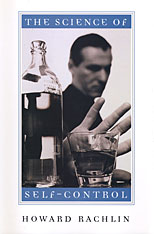
This impressive collection features Richard Herrnstein's most important and original contributions to the social and behavioral sciences--his papers on choice behavior in animals and humans and on his discovery and elucidation of a general principle of choice called the matching law.
In recent years, the most popular theory of choice behavior has been rational choice theory. Developed and elaborated by economists over the past hundred years, it claims that individuals make choices in such a way as to maximize their well-being or utility under whatever constraints they face; that is, people make the best of their situations. Rational choice theory holds undisputed sway in economics, and has become an important explanatory framework in political science, sociology, and psychology. Nevertheless, its empirical support is thin.
The matching law is perhaps the most important competing explanatory account of choice behavior. It views choice not as a single event or an internal process of the organism but as a rate of observable events over time. It states that instead of maximizing utility, the organism allocates its behavior over various activities in exact proportion to the value derived from each activity. It differs subtly but significantly from rational choice theory in its predictions of how people exert self-control, for example, how they decide whether to forgo immediate pleasures for larger but delayed rewards. It provides, through the primrose path hypothesis, a powerful explanation of alcohol and narcotic addiction. It can also be used to explain biological phenomena, such as genetic selection and foraging behavior, as well as economic decision making.

This book proposes a new science of self-control based on the principles of behavioral psychology and economics. Claiming that insight and self-knowledge are insufficient for controlling one's behavior, Howard Rachlin argues that the only way to achieve such control--and ultimately happiness--is through the development of harmonious patterns of behavior.
Most personal problems with self-control arise because people have difficulty delaying immediate gratification for a better future reward. The alcoholic prefers to drink now. If she is feeling good, a drink will make her feel better. If she is feeling bad, a drink will make her feel better. The problem is that drinking will eventually make her feel worse. This sequence--the consistent choice of a highly valued particular act (such as having a drink or a smoke) that leads to a low-valued pattern of acts--is called "the primrose path."
To avoid it, the author presents a strategy of "soft commitment," consisting of the development of valuable patterns of behavior that bridge over individual temptations. He also proposes, from economics, the concept of the substitutability of "positive addictions," such as social activity or exercise, for "negative addictions," such as drug abuse or overeating.
Self-control may be seen as the interaction with one's own future self. Howard Rachlin shows that indeed the value of the whole--of one's whole life--is far greater than the sum of the values of its individual parts.
READERS
Browse our collection.
PUBLISHERS
See BiblioVault's publisher services.
STUDENT SERVICES
Files for college accessibility offices.
UChicago Accessibility Resources
home | accessibility | search | about | contact us
BiblioVault ® 2001 - 2024
The University of Chicago Press









